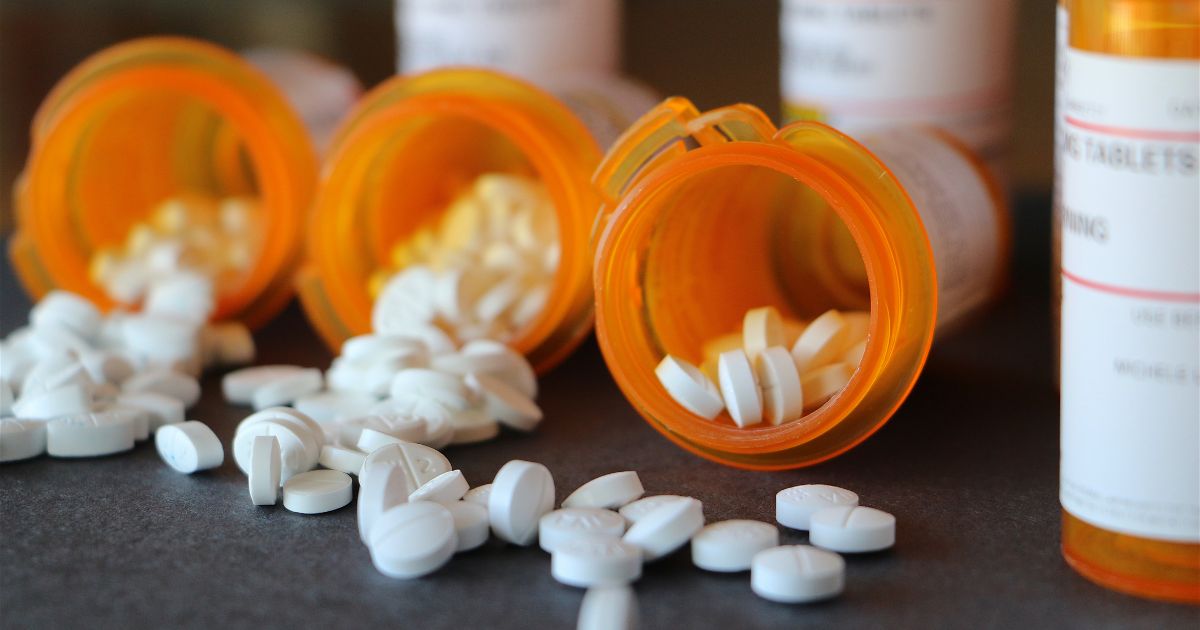When rapper and music mogul Diddy (formerly known as P. Diddy) was arrested on charges of sex trafficking and racketeering, a variety of substances were found in his possession. While the over 1,000 bottles of baby oil captured most of the headlines, reports are that he also required his staff to carry rather exotic drugs, such as “pink cocaine,” ecstasy, GHB, and something called “liquid cocaine.” In this article, we’ll explain the dangers of liquid cocaine.
Can Cocaine Be a Liquid?
When most people hear the word “cocaine,” they generally think of its white powder formulation. But cocaine can also be a liquid. Cocaine hydrochloride, the powdered form of cocaine, is water-soluble. When dissolved in water or another liquid, it creates a liquid solution of cocaine.
There are a couple of reasons people turn cocaine into a liquid. Cocaine in liquid form is occasionally used as a local anesthetic, particularly in certain medical or dental procedures. This is a controlled, regulated use of the substance.
However, it’s mostly used for illicit purposes. Cocaine solutions can be injected intravenously. This is highly dangerous and increases the risk of overdose and infections. Drug traffickers also sometimes dissolve cocaine in liquids (like alcohol, water, or other substances) to smuggle it more discreetly. The liquid cocaine can later be extracted or processed back into its solid form.
Other Forms of Cocaine
Cocaine is available in various forms, each with distinct physical characteristics, methods of use, and associated risks.
Here are the primary forms:
- Cocaine Hydrochloride (Powder Cocaine) – The most widely recognized form of cocaine, highly water-soluble. Often diluted with other substances like talc, baking soda, or other drugs to increase profit margins.
- Crack Cocaine – Made by processing powdered cocaine with baking soda and water to create a smokable substance. Crack is often cheaper but more addictive than powdered cocaine.
- Freebase Cocaine – Created by chemically altering cocaine to remove impurities. Highly flammable and dangerous to produce.
- Pink Cocaine (Tusi/Tucibi) – Despite its name, it often does not contain actual cocaine. Instead, it’s a mix of synthetic drugs like 2C-B (a psychedelic) and other stimulants. Popular in party settings, which is why it was named in the Diddy lawsuit.
- Liquid Cocaine – Less common but increasingly used for smuggling purposes or intravenous use.
- Coca Paste (Paco) – A low-purity, cheap, and highly addictive intermediate product in cocaine production. Common in South America.
- Synthetic Cocaine – Created in labs to mimic cocaine’s effects, these are often sold as “legal highs” or in mislabeled products. They can be more toxic and unpredictable.
Each form of cocaine carries significant health risks. Cocaine abuse poses severe risks to both physical and mental health. It can cause heart attacks, strokes, respiratory damage, and neurological impairment, with chronic use leading to addiction and intense cravings.
How Liquid Cocaine is Made and Used
Cocaine in its liquid form is often used in drug smuggling because it is more difficult to detect during customs inspections and can be disguised as everyday liquids like beverages, cleaning products, or cosmetics. Once smuggled, the liquid cocaine is typically extracted and processed back into a powder or crystallized form for distribution and consumption.
The 2025 Hong Kong drug bust underscores the scale and sophistication of this operation. Customs officers seized 40 kilograms of liquid cocaine concealed in wine bottles, highlighting how traffickers exploit everyday items to smuggle drugs. Such incidents illustrate the ongoing challenges law enforcement faces in combating smuggling, as traffickers continually adapt their methods to evade detection. Colombian drug traffickers are also increasingly turning to liquid cocaine as a way to evade drug enforcement authorities.
In terms of use, liquid cocaine is rarely consumed in its liquid state due to the challenges of measuring and administering precise doses. However, it can be injected, which poses severe risks, including vein damage, infections, and overdose. More commonly, liquid cocaine is a transportation method, reflecting its role in global drug trafficking networks. Reports are that Diddy may have been involved in liquid cocaine trafficking.
Get confidential help from our addiction treatment specialists in Orange County. Call to join our rehab program today!
Call 866-881-1184Ways of Smuggling Liquid Cocaine
Liquids are ideal for transportation since they can take the shape of any container they are placed in. Recent drug seizures around the world have revealed the many ways liquid cocaine is smuggled. US Customs and Border Patrol has found liquid cocaine inside shampoo bottles, for example. In Colombia, drug traffickers have concealed liquid cocaine in shipments of molasses and organic fertilizer. In the Hong Kong drug bust, Brazilian smugglers arrested in the port city had been found with liquid cocaine inside wine bottles.
Dangers and Risks of Liquid Cocaine Use
When consumed, liquid cocaine rapidly increases dopamine levels in the brain, leading to heightened alertness, euphoria, and increased energy. However, these effects are accompanied by significant health risks. Users may experience elevated heart rate and blood pressure, which can result in severe cardiovascular complications such as heart attacks and strokes.
One study found that liquid cocaine IV infusions led participants to experience increased paranoia and feelings of suspicion toward others.
The unpredictable potency of liquid cocaine increases the likelihood of overdose, which can be fatal. It’s crucial to recognize that any form of cocaine use carries substantial health risks and potential for addiction.
Looking for quality substance abuse treatment that’s also affordable? South Coast accepts most major insurance providers. Get a free insurance benefits check now.
Check Your CoverageSeeking Help for Cocaine Addiction
Cocaine addiction is serious. Whether it’s liquid cocaine or cocaine in any other form, chronic cocaine use can lead to severe health issues such as heart attacks, strokes, respiratory problems, and damage to the brain, nervous system, and internal organs. It can also weaken the immune system, making the body more susceptible to infections. Overdose is a constant danger, especially with the growing prevalence of cocaine laced with deadly substances like fentanyl.
Psychologically, it often results in paranoia, anxiety, and depression. Long-term use can also damage relationships with friends and family, as well as one’s career, due to neglected responsibilities and reduced functioning. Ultimately, cocaine addiction is a destructive cycle that requires comprehensive support and treatment to overcome, as its impact reverberates through the physical, mental, and social dimensions of a person’s life.
Cocaine addiction treatment involves a mix of talk therapies like Cognitive Behavioral Therapy and Motivational Enhancement Therapy, coupled with medical detox and a full continuum of care.
Get Started Today
If you or a loved one are abusing liquid cocaine or struggling with cocaine addiction but wonder how long addiction treatment takes or have other questions, call us at 866-881-1184 or contact us here. Our highly qualified staff will be happy to help give you an idea of what to expect from your addiction recovery timeline, verify your insurance, and assist with any other questions you may have.
- Position Statement: Medical Use of Cocaine – American Academy of Otolaryngology-Head and Neck Surgery (AAO-HNS)
- What is ‘pink cocaine’? Designer drug linked to Liam Payne and Sean ‘Diddy’ Combs – ABC7 San Francisco
- Hong Kong Customs and Excise Department – Press Release
- Intravenous cocaine: psychiatric effects, biological mechanisms – PubMed
- Liquid Cocaine: A Rising Trend Among Colombia’s Traffickers









